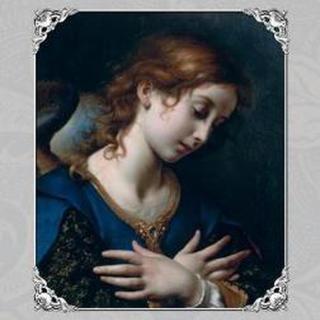
介绍:
CHAPTER XV.
AN AVERAGE STATESMAN.
Count Ivan Michaelovitch had been a minister, and was a man of strong convictions. The convictions of Count Ivan Michaelovitch consisted in the belief that, just as it was natural for a bird to feed on worms, to be clothed in feathers and down, and to fly in the air, so it was natural for him to feed on the choicest and most expensive food, prepared by highly-paid cooks, to wear the most comfortable and most expensive clothing, to drive with the best and fastest horses, and that, therefore, all these things should be ready found for him. Besides this, Count Ivan Michaelovitch considered that the more money he could get out of the treasury by all sorts of means, the more orders he had, including different diamond insignia(象征;徽章) of something or other, and the oftener he spoke to highly-placed individuals of both sexes, so much the better it was.
All the rest Count Ivan Michaelovitch considered insignificant and uninteresting beside these dogmas. All the rest might be as it was, or just the reverse. Count Ivan Michaelovitch lived and acted according to these lights for 40 years, and at the end of 40 years reached the position of a Minister of State. The chief qualities that enabled Count Ivan Michaelovitch to reach this position were his capacity of understanding the meaning of documents and laws and of drawing up, though clumsily(笨拙地;不合用的), intelligible State papers, and of spelling them correctly; secondly, his very stately appearance, which enabled him, when necessary, to seem not only extremely proud, but unapproachable and majestic, while at other times he could be abjectly and almost passionately servile; thirdly, the absence of any general principles or rules, either of personal or administrative morality, which made it possible for him either to agree or disagree with anybody according to what was wanted at the time. When acting thus his only endeavour was to sustain the appearance of good breeding and not to seem too plainly inconsistent. As for his actions being moral or not, in themselves, or whether they were going to result in the highest welfare or greatest evil for the whole of the Russian Empire, or even the entire world, that was quite indifferent to him. When he became minister, not only those dependent on him (and there were great many of them) and people connected with him, but many strangers and even he himself were convinced that he was a very clever statesman. But after some time had elapsed and he had done nothing and had nothing to show, and when in accordance with the law of the struggle for existence others, like himself, who had learnt to write and understand documents, stately and unprincipled officials, had displaced him, he turned out to be not only far from clever but very limited and badly educated. Though self-assured, his views hardly reaching the level of those in the leading articles of the Conservative papers, it became apparent that there was nothing in him to distinguish him from those other badly-educated and self-assured officials who had pushed him out, and he himself saw it. But this did not shake his conviction that he had to receive a great deal of money out of the Treasury every year, and new decorations for his dress clothes. This conviction was so firm that no one had the pluck to refuse these things to him, and he received yearly, partly in form of a pension, partly as a salary for being a member in a Government institution and chairman of all sorts of committees and councils, several tens of thousands of roubles, besides the right—highly prized by him—of sewing all sorts of new cords to his shoulders and trousers, and ribbons to wear under and enamel stars to fix on to his dress coat. In consequence of this Count Ivan Michaelovitch had very high connections.
大家还在听

